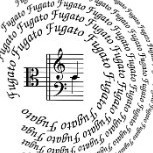Should Leica Abandon The M8?
-
Recently Browsing 0 members
- No registered users viewing this page.
-
Similar Content
-
- 40 replies
- 15,846 views
-
- 33 replies
- 4,692 views
-
- 19 replies
- 951 views
-
- 5 replies
- 474 views
-
- 20 replies
- 1,273 views
-





Recommended Posts
Join the conversation
You can post now and register later. If you have an account, sign in now to post with your account.
Note: Your post will require moderator approval before it will be visible.